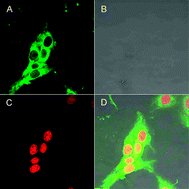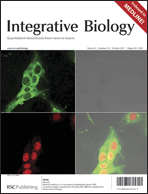Nanoformulation of d-α-tocopheryl polyethylene glycol 1000 succinate-b-poly(ε-caprolactone-ran-glycolide) diblock copolymer for breast cancer therapy
Abstract
The purpose of this research was to develop formulation of docetaxel-loaded biodegradable TPGS-b-(PCL-ran-PGA)


 Please wait while we load your content...
Please wait while we load your content...